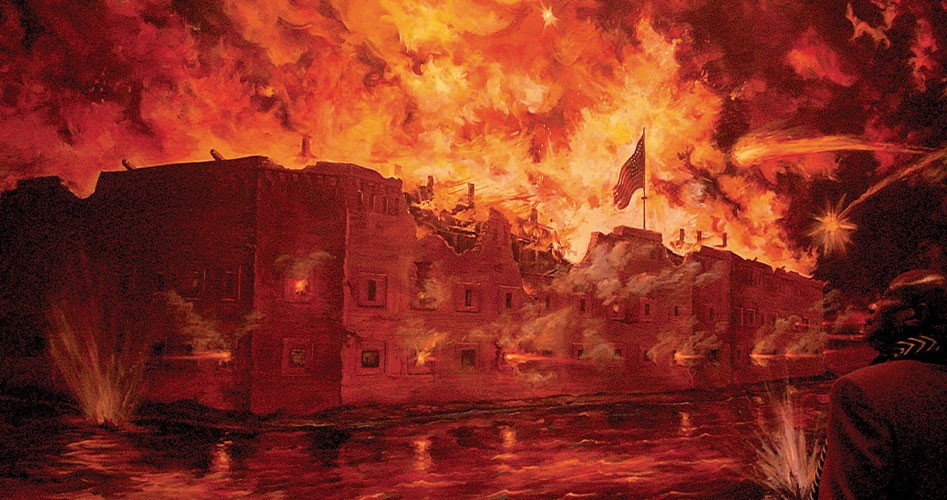Dividing a Nation
Wars are seldom tidy, and often the unfinished business from one war provides the spark and tinder for the next. The forts that guarded Charleston Harbor in the latter half of the 19th century were part of a series of coastal defenses planned after the War of 1812 to protect all the principal seaports of the United States. Like most of the system, the forts in Charleston were still unfinished in 1861. Not long after the war with the British, America became preoccupied with battles within, as wars with Indian tribes continued through most of the century.
But by the 1850s, tensions had increased between the Northern and Southern states over slavery and its expansion into territories of the United States, and over tariffs that protected manufacturers in the industrial Northeast, but forced residents of the agrarian South to pay more for their consumer goods and to face retaliatory tariffs from other countries against Southern exports of cotton and tobacco. By the fall of 1860, South Carolina was determined it would not remain in a union presided over by Republican Abraham Lincoln of Illinois. On November 6, Lincoln prevailed in a four-way race with less than 40 percent of the popular vote. When the choice had been confirmed by the Electoral College, a convention in Charleston adopted on the 20th of December an Ordinance of Secession, repealing the state’s ratification of the Constitution of the United States and declaring, “The union now subsisting between South Carolina and other States, under the name of the ‘United States of America,’ is hereby dissolved.” Four days later, on Christmas Eve, South Carolina issued its Declaration of the Immediate Causes Which Induce and Justify the Secession of South Carolina from the Federal Union.
Among its grievances, the document noted the growing hostility in the Northern states to the institution of slavery and the lack of enforcement of the requirement, explicit in the Constitution as well as federal statutes, that escaped slaves be returned to their masters. Ironically, since the principle of nullification is most notably associated with that distinguished South Carolinian, John C. Calhoun, South Carolina now inveighed against those states that ignored or defied laws regarding fugitive slaves and had “enacted laws which either nullify the Acts of Congress or render useless any attempt to execute them.”
JBS Member or ShopJBS.org Customer?
Sign in with your ShopJBS.org account username and password or use that login to subscribe.

 Subscribe Now
Subscribe Now
- 24 Issues Per Year
- Digital Edition Access
- Exclusive Subscriber Content
- Audio provided for all articles
- Unlimited access to past issues
- Cancel anytime.
- Renews automatically

 Subscribe Now
Subscribe Now
- 24 Issues Per Year
- Print edition delivery (USA)
*Available Outside USA - Digital Edition Access
- Exclusive Subscriber Content
- Audio provided for all articles
- Unlimited access to past issues
- Cancel anytime.
- Renews automatically

